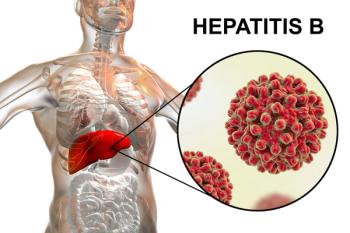
Fluvoxamine Seems to Not Be Effective Against COVID-19
Earlier results suggesting that fluvoxamine might be an effective treatment were from trials conducted earlier in the pandemic when vaccines weren’t available and other variants were circulating.
Repurposing existing drugs as treatments for a brand-new disease was one the early, trial-balloon ideas on how to cope with COVID-19 pandemic.
Sometimes it worked. Dexamethasone, a powerful corticosteroid, was founded to be effect in treating people with COVID-19 that was severe enough that they needed to be hospitalized. Similarly, remdesivir, an antiviral that was originally developed as a treatment for Ebola, was found to be effective in the treatment of people with COVID-19 who were hospitalized.
But other times it didn’t work out. For example, the FDA ended up revoking the emergency use authorization for hydroxychloroquine.
Today, another repurposed drug for treatment of COVID-19 fell by the wayside. Results1 reported online on JAMA’s website showed that fluvoxamine was not effective as a treatment for mild-to-moderate treatment.
Fluvoxamine is a selective serotonin reuptake inhibitor and so in the same class of drugs as a Prozac (fluoxetine) and Zoloft (sertraline). It was approved by the FDA as a treatment for obsessive-compulsive disorder in 1994 and is used to treat a number of psychiatric conditions. But fluvoxamine also has anti-inflammatory properties. Results from a clinical trial conducted in Brazil suggested that it might be effective in heading off hospitalization. Results of a meta-analysis published in JAMA Network Open last year were also favorable.
The results posted today showed no difference between the fluvoxamine group and the placebo in the trial’s primary outcome, which was the time to sustained recovery, defined as the third day of three consecutive days without symptoms. The median time to sustained recovered was 12 days for the people randomized to take fluvoxamine compared to 13 in the placebo group, a difference that statistical tests showed was insignificant. Similarly, there was no advantage to taking fluvoxamine when the researchers analyzed secondary outcomes, such as hospitalization, urgent care visits or death.
The trial was large and therefore statistically reliable: 1331 people were enrolled and 1288 completed the study and were included in the analysis, 674 of whom were in the fluvoxamine group and 614 in the placebo group. It was sponsored by the federal government’s National Center for Advancing Translational Sciences and is part of the continuing Accelerating COVID-19 Therapeutic Interventions and Vaccines platform that was set up to test repurposed drugs as COVID-19 treatments among people who haven’t been hospitalized.
What explains the thumbs-down results from this trial and the favorable results of the previous ones? One difference is that this trial used a lower dose of fluvoxamine than the dose in the Brazilian trial. Patients in this trial took 50 milligrams twice daily. In the Brazilian trial, the participants took 100 milligrams twice daily.
But the corresponding author, Susanna Naggie, M.D., M.H.S., of the Duke Clinical Research Institute, and her colleagues also noted that the Brazilian trial was conducted before the Omicron variant and various subvariants were circulating. In addition, the people enrolled in the Brazilian trial were unvaccinated whereas two-thirds (67%) of those enrolled in their trial reported having received at least two doses of a COVID-19 vaccine.
In an accompanying editorial by Adarsh Bhimraj, MD, of Houston Methodist Hospital and Jason Gallagher, PharmD, of Temple University in Philadelphia, wrote that COVID-19 has become a less severe disease because more people have immunity (because of vaccination and having had COVID-19) and the characteristics of the variants.
Bhimraj and Gallagher praised the persistence of researchers who conducted this latest fluvoxamine trial. “Drugs shown to be effective earlier in immune-naïve populations and against more problematic SARS-CoV-2 variants require further study to define their role in the current landscape of COVID-19,” they wrote.
Reference
1. McCarthy MW, Naggie S, Boulware DR, et al. Effect of Fluvoxamine vs placebo on time to sustained recovery in outpatients with mild to moderate COVID-19: a randomized clinical trial. JAMA. 2023 Jan 12. doi: 10.1001/jama.2022.24100. Online ahead of print.
Newsletter
Pharmacy practice is always changing. Stay ahead of the curve with the Drug Topics newsletter and get the latest drug information, industry trends, and patient care tips.























